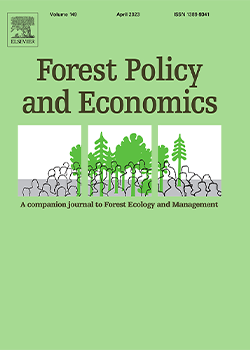
Synergies among social safeguards in FLEGT and REDD + in Cameroon
Year of publication: 2017
Author: Tegegne Y.; Sabaheta Ramcilovic-Suominen; Kalame Fobissie.; Ingrid J. Visseren-Hamakers, Marcus Lindner; Markku Kanninen
Abstract
Two key international policy processes have been developed to combat illegal logging and promote the contribution of forests to climate change mitigation in developing countries: the European Union’s Action Plan on Forest Law Enforcement, Governance and Trade (FLEGT) and its Voluntary Partnership Agreements (VPAs), and the United Nations Framework Convention on Climate Change policy on Reducing Emissions from Deforestation and Forest Degradation (REDD +). The implementation of these policies raises concerns about unintended adverse effects on the environment and local peoples’ livelihoods. To prevent such effects, both processes involve developing country-level safeguards, so that they ‘do no harm’. This paper presents (i) a comparison of the social safeguards of the FLEGT-VPA and REDD + processes and an explanation of their commonalities and differences, and (ii) an exploration of the potential synergies and the challenges to realizing them. The three main research methods used in the study were semi-structured interviews, content analysis of policy documents, and focus group discussions with local communities and indigenous peoples in south and east Cameroon. Our analysis shows that whereas FLEGT-VPA includes legality-based safeguards with legally binding monitoring and reporting obligations, REDD + adopts a right-based approach to safeguards. Potential synergies between the two approaches were identified. The synergies lie in the participatory nature of the process of designing benefit sharing mechanisms, strengthening forest and land tenure, and defining the criteria and indicators in FLEGT-VPA and REDD + safeguards. However, realizing the synergies is challenging, given the existing political economy of Cameroon.
